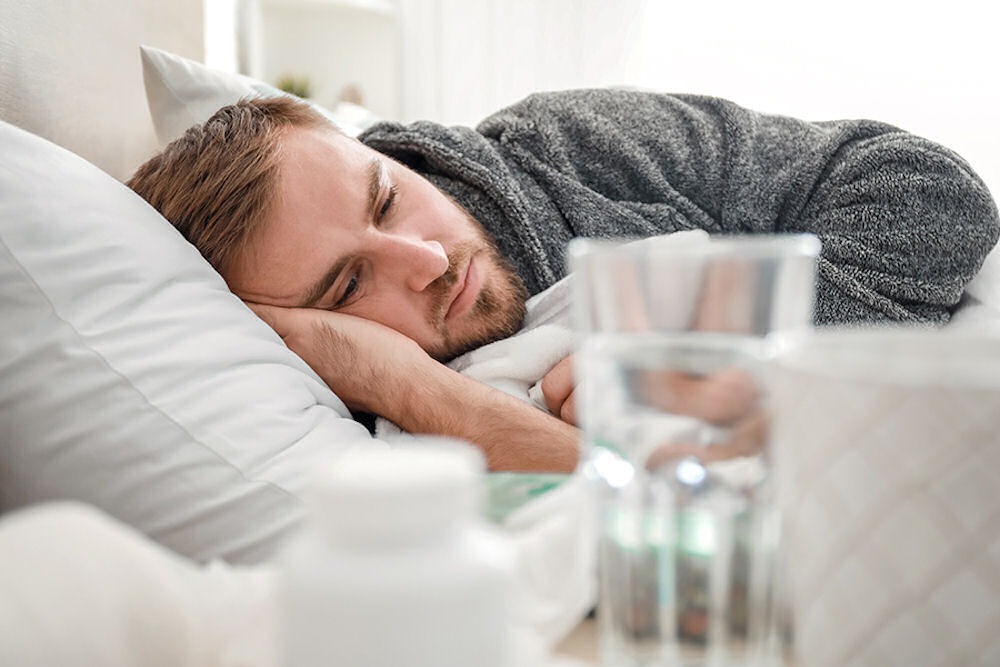Kratom and Vivitrol are two substances that often surface in discussions about addiction treatment, but their relationship is not entirely clear. Kratom is a plant with opioid-like effects, while Vivitrol (naltrexone) is an FDA-approved medication that blocks the effects of opioids and alcohol. But does Vivitrol block kratom the same way it does with opioids? To answer that question, we’ll explore how both substances work, their interactions, and the challenges of treating kratom addiction, which we help address at Crestview Recovery.
What is Kratom and How Does It Affect the Body?
Kratom is a plant native to Southeast Asia, where it has been traditionally used for its stimulant and pain-relieving properties. The leaves of the kratom plant are either chewed, brewed into a tea, or crushed into powder form to be taken as a supplement. While kratom remains legal in many parts of the United States, it is unregulated and considered a controversial substance due to its potential for abuse and addiction.
In lower doses, kratom acts as a stimulant, providing a burst of energy or improved focus. At higher doses, it exhibits opioid-like effects, including pain relief and sedation. This has made kratom popular among individuals seeking relief from chronic pain, anxiety, or withdrawal symptoms from other drugs.
Kratom contains active compounds called alkaloids, primarily mitragynine and 7-hydroxymitragynine. These alkaloids bind to the same opioid receptors in the brain as prescription opioids like morphine or heroin, creating pain-relieving effects. However, kratom doesn’t fully mimic the behavior of traditional opioids. At lower doses, its effects are more stimulating, while higher doses induce sedation and euphoria.
Due to these opioid-like properties, kratom can trigger dependency and addiction in regular users, and sudden cessation can lead to withdrawal symptoms similar to opioids.
People use kratom for various reasons, including pain relief, mood enhancement, or increased energy. Many individuals turn to kratom as a form of self-medication, particularly to manage opioid withdrawal symptoms, treat chronic pain, or cope with anxiety and depression. Unfortunately, this perceived relief can turn into dependency, and users often find themselves trapped in a cycle of increasing doses and more severe withdrawal symptoms.
How Does Vivitrol Work?
Vivitrol is an extended-release form of naltrexone, a medication that blocks the effects of opioids and reduces cravings for alcohol. When administered, Vivitrol binds to opioid receptors in the brain, preventing other substances, like heroin or prescription painkillers, from activating them. As a result, it blocks the euphoric and pain-relieving effects of these substances, helping people in recovery avoid relapse.
Vivitrol is commonly used in addiction treatment because it helps reduce cravings without producing the highs or lows associated with substances like opioids or alcohol.
How Vivitrol Interacts with the Brain’s Opioid Receptors
Vivitrol works by occupying the brain’s opioid receptors. These receptors are responsible for the feelings of pleasure and pain relief associated with opioids. By binding to these receptors, Vivitrol acts as a blockade, making it nearly impossible for opioids to produce their usual effects, even if taken. This mechanism makes Vivitrol an effective tool for preventing relapse in individuals recovering from opioid addiction.
Can Vivitrol Block Kratom in the Same Way as Opioids?
 Vivitrol is specifically designed to block opioid receptors, and since kratom’s active compounds also target these receptors, it raises the question of whether Vivitrol can block kratom in the same way it blocks traditional opioids. The answer isn’t entirely straightforward.
Vivitrol is specifically designed to block opioid receptors, and since kratom’s active compounds also target these receptors, it raises the question of whether Vivitrol can block kratom in the same way it blocks traditional opioids. The answer isn’t entirely straightforward.
While kratom’s alkaloids bind to opioid receptors, they do so in a slightly different manner than prescription opioids. Vivitrol may block some of kratom’s opioid-like effects, but its effectiveness is likely limited due to kratom’s unique interaction with these receptors. Additionally, Vivitrol does not affect the stimulant effects of kratom, which occur at lower doses.
Research into the interaction between Vivitrol and kratom is still in its early stages, and there are no definitive studies confirming whether Vivitrol fully blocks the effects of kratom. Most of the research surrounding Vivitrol focuses on its ability to treat opioid and alcohol use disorders, leaving a gap in understanding when it comes to substances like kratom.
Due to the complex nature of kratom’s alkaloids, Vivitrol may not block kratom as effectively as it does traditional opioids. Mitragynine, one of the primary alkaloids in kratom, binds to multiple receptor types in the brain, not just opioid receptors. This means that even with Vivitrol’s opioid-blocking capabilities, kratom could still produce some of its stimulating or mood-altering effects.
Can You Use Kratom While on Vivitrol?

Using kratom while on Vivitrol presents several risks. Although Vivitrol may block some of kratom’s effects, users may still experience cravings or turn to higher doses of kratom in an attempt to overcome the blocking effects. This can increase the likelihood of overdose, dependency, or dangerous interactions with other medications.
Mixing kratom with Vivitrol can lead to unexpected and potentially harmful outcomes, especially since kratom’s stimulant properties may not be impacted by Vivitrol’s opioid-blocking action.
Potential Dangers of Mixing Kratom with Other Substances
Combining kratom with other substances, especially while on Vivitrol, can heighten the risks of adverse reactions. Kratom’s unregulated nature means users can never be sure of its potency or purity, increasing the risk of contamination or overdose when mixed with other drugs or alcohol. At Crestview Recovery, we emphasize the importance of understanding these risks and seeking professional support when considering medications like Vivitrol during recovery.
Is Kratom Addictive?
Kratom addiction develops similarly to opioid addiction. As users continue to take higher doses, they may develop a tolerance, requiring even larger amounts of the substance to achieve the same effects. Signs of kratom addiction include compulsive use, neglecting responsibilities, withdrawal symptoms when not using, and failed attempts to quit.
When someone dependent on kratom tries to stop using, they may experience withdrawal symptoms that resemble those of opioids. Common withdrawal symptoms include anxiety, irritability, muscle aches, insomnia, and cravings. These symptoms can range from mild to severe, making it challenging for individuals to quit on their own.
How Can You Treat Kratom Addiction?
 If you struggle with Kratom dependence or are experiencing Kratom withdrawal symptoms, there is treatment available!
If you struggle with Kratom dependence or are experiencing Kratom withdrawal symptoms, there is treatment available!
Detoxing from kratom should be done under medical supervision to ensure safety and minimize withdrawal symptoms. Medically-assisted detox programs that provide 24/7 support during this critical phase of recovery. The goal is to help individuals manage their withdrawal symptoms comfortably and safely as they begin their journey toward lasting sobriety.
At Crestview Recovery, we recognize that kratom addiction requires specialized treatment. Our comprehensive programs are designed to address both the physical and psychological aspects of addiction. We offer evidence-based therapies like cognitive-behavioral therapy (CBT) and group counseling to help individuals understand the underlying causes of their addiction and develop the skills needed for long-term recovery.
Long-term recovery from kratom addiction is possible with the right support. At Crestview Recovery, we provide ongoing behavioral therapies, such as individual counseling, group therapy, and family support, to help individuals build a strong foundation for their recovery. We also offer relapse prevention programs and aftercare planning to ensure that our clients have the tools they need to maintain their sobriety after treatment.
If you or a loved one is struggling with kratom addiction, we encourage you to reach out to us at Crestview Recovery. Our team is here to provide the support and treatment needed to overcome addiction and reclaim a healthy, fulfilling life.
































